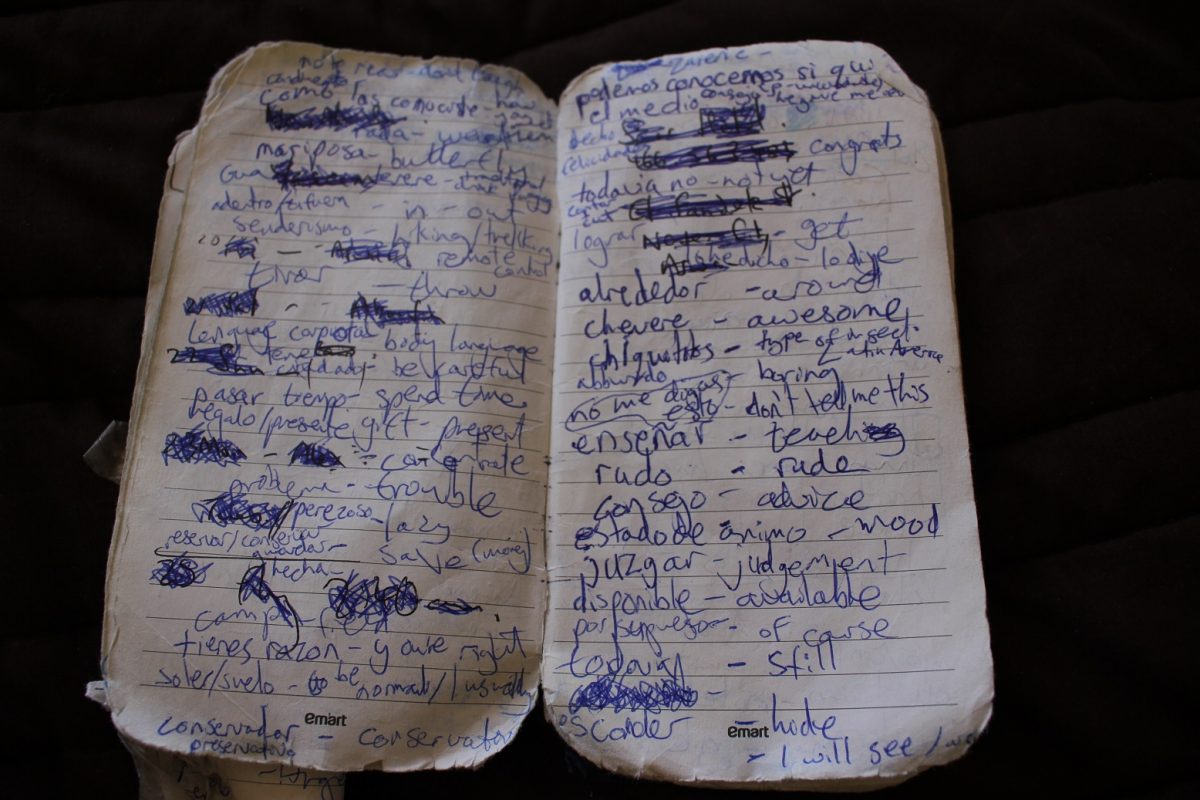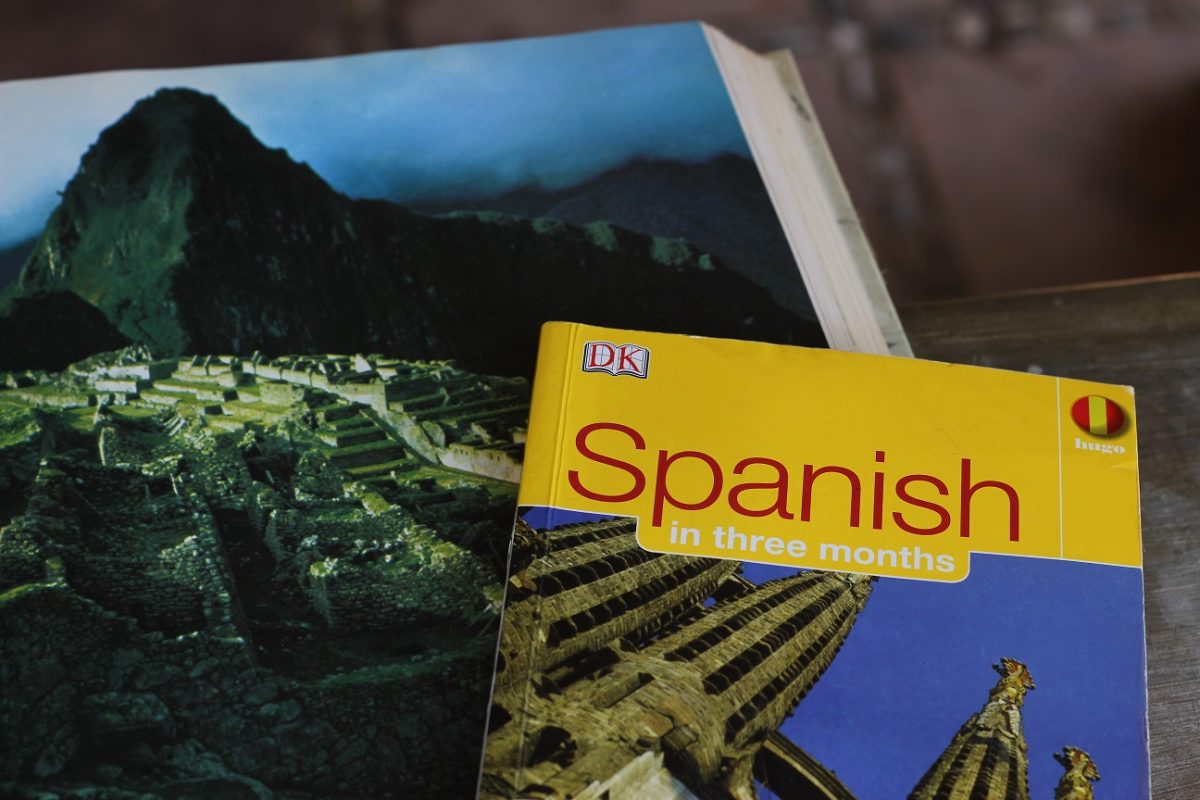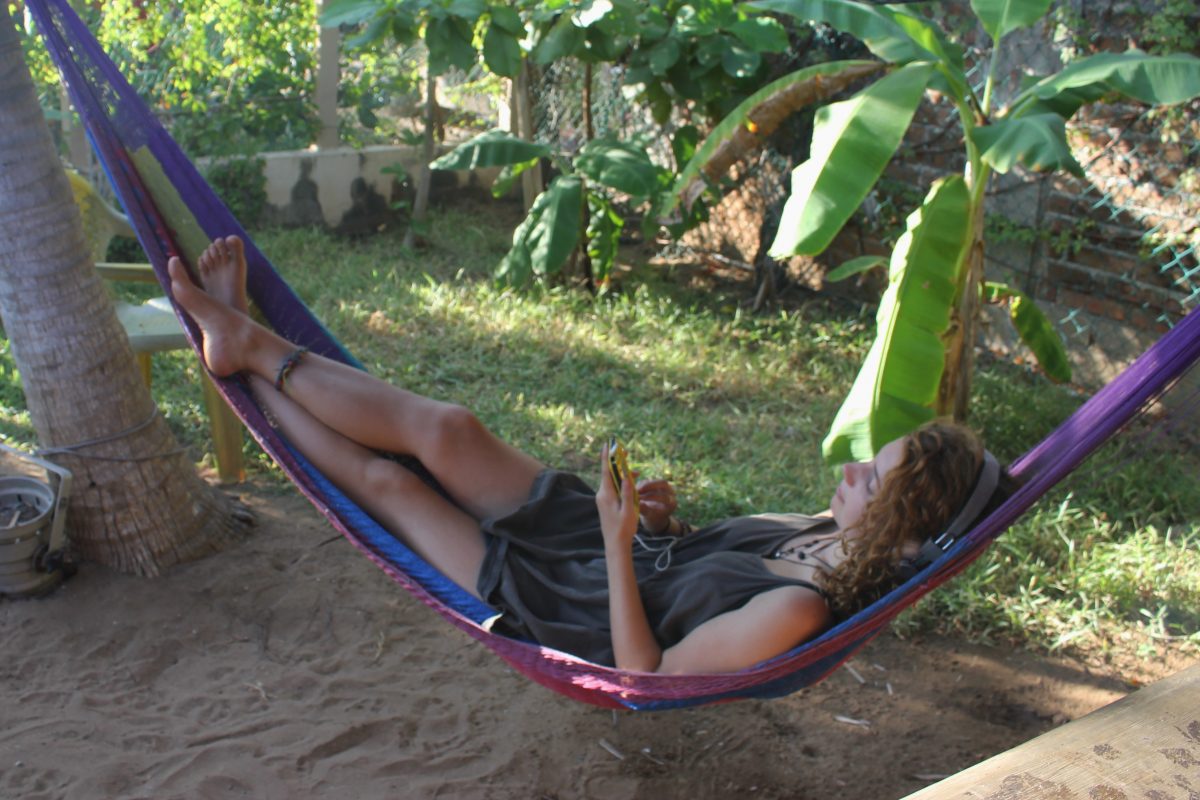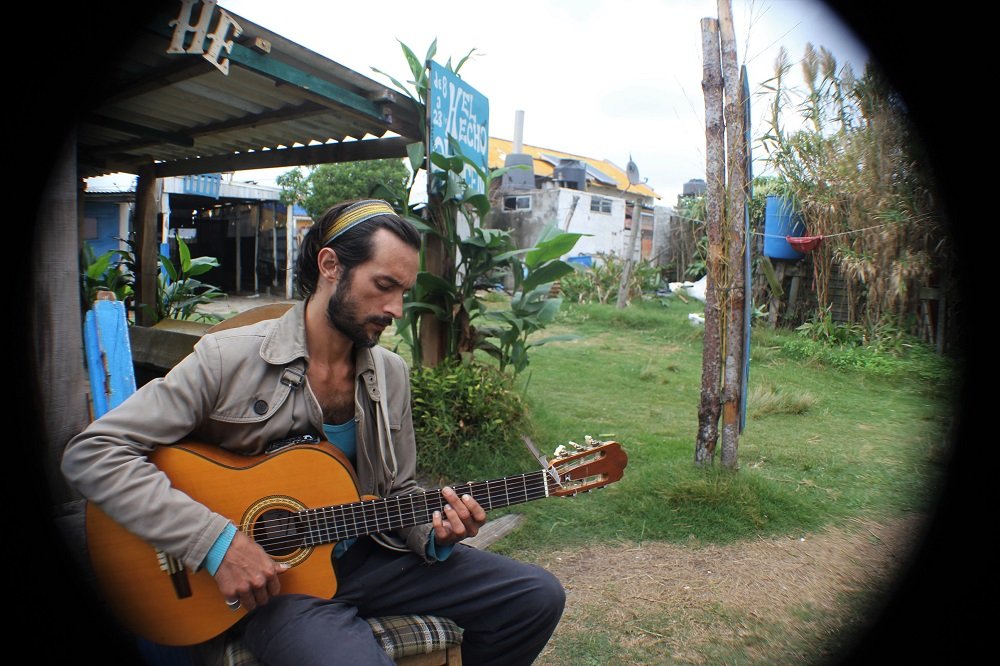If you’re planning a trip to Latin or South America and don’t yet speak any Spanish, now is the time to learn. On a basic level it will make your day to day life much more stress free and you won’t have to play charades every time you go to the shop. If you speak a little but want to improve, this is the perfect opportunity. Going beyond the basics is when the real fun begins and you can start conversing with people and entering their world. Either way, this post is for you.
-
- Some inspiration – Why You Should Really Learn Spanish If You’re Travelling Latin America
I’ve met so many people travelling here that wish they’d spoke more or any Spanish, and hope to just ‘pick some up’ as they go. Beyond a few survival phrases and swear words, it doesn’t work. Before I came I’d decided that I wanted to learn, and not feeling naturally gifted with languages (C in high school Spanish), thought about how I could learn before I set off. In 6 months, I’ve gone from competently buying food in a shop to discussing American politics with Mexicans over a beer: using all the techniques that are listed below. Travelling in Latin America might be the best opportunity of your life to learn Spanish, here’s how you can do it without spending a dime…
Hit the Ground Running
Landing in the continent with a few basics and survival phrases will not only help you massively but also enable you to start using the language from day one. Learn some vocab before and fix in habits that you will use on your journey before you leave; this way you can get a headstart and establish some kind of a learning rhythm. What habits? Read on…
- For some travel basics to get you started check out this quick travel Spanish guide at Mexicotrippa
Keep a Daily Diario
I advise this to everyone wanting to learn. Even if you have been hanging around English speaking people all day you can get some practice by yourself. Writing a short passage about what you did each day only takes about 15 minutes but you get practice constructing sentences in a zero-pressure situation and they will come out much easier when you come to say them in conversation. If you don’t know a word you can look it up on google translate; a chance that you wouldn’t be afforded when chatting to someone without the inconvenience of halting the conversation.

Memories of Uruguay
If you find yourself without internet, underline an empty space for the word with the English beside and fill it in later. You can also choose the tense you write in; start writing in the present, then move on to writing everything in the past. Later, you can start planning things and writing in the future tense. Occasionally asking a native speaker to read an entry and correct it will help you from falling into the trap of making the same mistakes over and over. People are easy to find, if you have a diary, others are nearly always curious to read. Doing this you’ll also keep a diary of your travels that you can read back in years to come – two birds, one stone.
Start Every Conversation in Spanish
When you meet anyone new, open the conversation in Spanish. The language you start in sets the precedent for the rest of your conversation with that person and potentially all of your interactions with them. You have a chance to practice all your basic phrases and small talk: your name, where you’re from, your travels plans etc., and as you learn more and more, your conversations will become longer, more detailed and more interesting. If they don’t speak Spanish, you have lost nothing. One time in Uruguay I was chatting to a guy for 10 minutes in Spanish before we found out that he was from South Africa and myself from England. We laughed and switched to English, but we both got speaking practice that we wouldn’t have if I’d greeted him with a ‘hey, how’s it going?’. Moreover, in the beginning it can be easier to get speaking practice with other non-native speakers who are also learning as they will speak more slowly, use basic words instead of slang, and be understanding of your mistakes and crappy accent. Take every opportunity to speak and with every encounter, however brief it may be, you will be clocking up practice time.
Make Notas
Get a pocket-sized notebook and pen and take it everywhere with you. EVERYWHERE. When you overhear a word or phrase in conversation that you don’t know, write it down immediately. Later ask a local what it means and then write down the English. You can go over the words in your free time – walking to the shop, with your morning coffee – and then start using them yourself. My vocabulary exploded doing this and I learnt words that I knew local people actually used.

My trusty tattered notebook
At the start of my travel I was a total outsider in so many group conversations. Argentinians, Colombians and Spanish all bantered and chatted with each other whilst I was sat with them barely understanding a thing. But I sat listening, writing, and learning. With time I understood more and more, could join in more and more, and by the time I got to Argentina (after 3 months in the continent) was holding my own in discussions about the Falklands (touchy subject – be careful with it if you’re British!).
Ask Locals
Many locals will be impressed if you speak any Spanish and if they know that you’re learning will be delighted to help you out. Throughout my journey I’ve had a string of teachers; every day is a chance to learn something new and everywhere you go there are people who can help you. During extended stays in Argentina and Mexico I’ve had porteños and chilangos proudly versing me in the local slang and received help with new words and pronunciation everywhere I’ve been.
Avoid Your Compatriots! (…Or Travel Alone)
When you are hanging out with English-speakers; you’re gonna speak in English. When you hang out with people that speak only Spanish; you will be forced to speak Spanish. Fairly obvious, but I meet a lot of people who spend their whole time hanging out with other travellers and then tell me that they wish they knew more Spanish (‘didn’t realise how useful it would be’ …duh).
At various points of my trip, anytime I spotted foreigners or overheard English being spoken, I headed in the other direction and went to find Latin Americans. Result of this; more practice and a better insight into the culture. I didn’t come all the way out here to meet other English people; I wanted to learn about the people of the place: their language, their food, their lives – you’re going to get a much deeper and more authentic experience of the country you’re visiting if you’re doing this. If you miss speaking in your mother tongue or a slice of home, just skype someone or find another traveller – if I had to actively avoid them then they can’t be too hard to find.
Volunteer or do a Work Exchange
Find a work exchange on workaway or helpx, or just ask around when you arrive in a new area. You can usually get an idea from a host’s profile which languages they speak and use. Tell them you speak a little Spanish (even if you don’t – then you will have to learn) and are eager to practice and improve.

Use CS for Language Exchanges and Meeting Locals
Couchsurfing isn’t just for staying with people, lots of people use it for meetups too. Find your location and start a thread in the discussions section saying you are searching for a language exchange – your English for someone else’s Spanish. English from a native speaker is sought after in nearly every corner of the world and I have always had numerous responses and a handful of options in every city that I’ve done this. Before you meet you can arrange how you’d like to do it; you can bring a sheet with any questions you have and some phrases you want to learn, or you can just chat casually and have some conversation practice. Post in a city’s discussion forum before you arrive and organise to meet up on your first day in the city. Aswell as your language lesson you will invariably get some handy local knowledge too.
- Alternatively, in many cities, there are weekly language exchange meetups that are open to anyone. Have a look through and go along if you don’t want a one-on-one appointment.
Tinder

Use Language Apps
[Set your phone and facebook to Spanish – you’ll pick up some useful vocab]
Duo lingo

Memrise

Listen to a Podcast
Download a free podcast and listen to it when you can (read: regularly). Coffee Break Spanish has a free podcast course that I’ve learnt a lot from. Each episode is like a lesson and only 15-20 minutes. It starts with the basics and goes on to more advanced things. If you already have a bit of Spanish you can quickly find your level and jump in on an appropriate episode, after the basics they have another course for intermediate level.
Always carry unlistened episodes downloaded on your phone so they are ready to go and you’re not reliant on internet connection or phone signal. I used to listen to them on long bus journeys and as I was going to sleep; all I needed was my phone and my headphones. I relistened to episodes to catch what I’d missed or revise things.
Supplement with Films…
Watch classic films from the place you’re visiting. Listen carefully for words you know, it feels great to catch newly learnt words and phrases. Whilst getting a feeling for the accent, you’ll see films set in places you’ve visited and hear characters talk about the history and politics of the place. Also, watch films in English with Spanish subtitles, this will train your reading and writing skills too. A hostel in Asuncion I stayed in always had the movie channel on in the lounge – American films with Spanish subtitles. I would sit with my notebook and pen and write down little phrases that were funny or useful – many of them I still use today.
…and Music
Get recommendations of music from the country and when you find something you like, get it on your phone. Learn the words to a few of your favourite songs and you will see your level rise (starting with rap might be tricky but if you can rap a song to speed you’ll impressive any native). Staying with proud Argentinians in Buenos Aires, I was taught all about their fathers of rock: Spinetta, Cerati, Garcia. One of them sat down with me and went through the lyrics of a Spinetta song that I liked, line by line, explaining words I didn’t know and the meanings in the expressions; I realised that Spinetta was a poet as well as a musical genius and listened to his masterpiece album Artaud so many times that I started singing the words and understanding the songs.
Keep Trucking
So this one isn’t especially concerned with being on the road or in Latin America but I think it’s so fundamental to learning anything that I decided to include it anyway. Sometimes your progress will be great, you will feel good about learning, be using more and more Spanish and feel like you’re going to be fluent in no time. Other times it will be tough, you might have moved to a new place with a totally new accent or spending all your time with speakers of other languages. Your progress will slow but if you’re still writing your diary, catching new words when you can and taking opportunities as they arise: you’ll still be going in the right direction. As they say out here: paso a paso – step by step.
Best Of Luck!
To my mind, having taught English for the last 4 years, the winning combination for effectively learning a language can be simplified as:
(Immersion + Practice) x learning smart
Being in Latin America and surrounded by the language is immersion and presents ample opportunity for practice, and how you learn is up to you. This post has all the techniques that I’ve used and have worked for me. Find which of these work for you and adapt your own. Work diligently, patiently and persistently, day-by-day, hop back on the horse after you’ve been slacking for a bit, and you will be bantering with the guy at the corner store and haggling like a pro before you know it. If you have any extra tips that have worked for you, please leave a comment below.
Buena suerte!
_ _ _ _ _ _ _ _ _ _ _ _ _ _ _ _ _ _ _ _ _ _ _ _ _ _ _ _ _ _ _ _ _ _ _ _ _ _ _ _ _ _ _ _ _ _ _ _ _ _ _ _ _
A Final Note: Going Further…
For the sake of brevity this post was primarily concerned with ways that are focused on learning Spanish while you are travelling in Latin America, based on techniques that have worked for me. Of course it’s possible to learn in your home country and there are loads of other techniques out there (like mentally saying to yourself what you are doing as you do it throughout the day; ‘Estoy caminando a la tienda’ – I’m walking to the shop), but if you are wanting to really hit the next level I’d advise doing a little investigation into more techniques and the process of learning itself; there are tips and tricks to hack your learning experience and make your learning more efficient, helping you to learn more in less time. Here are a couple links to get you started:
12 Rules for Learning Foreign Languages in Record Time – Benny Lewis







